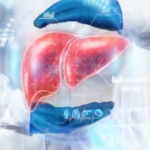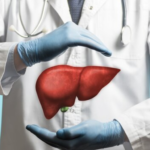
Liver diseases are a significant health concern globally, with various factors contributing to their prevalence. The role of a hepatologist, a specialist in liver diseases, is crucial in managing these conditions effectively. In this article, we will explore the importance of hepatologists in liver disease management, highlighting the contributions of Dr. Prasad Bhate, a renowned gastroenterologist in Pune, and his Gastro Liver Clinic.
The liver is a vital organ responsible for performing essential functions, such as detoxification, metabolism, and nutrient storage. Liver diseases encompass a wide range of conditions that affect the liver’s structure and function, leading to serious health complications if left untreated.
What is a Hepatologist?
A hepatologist is a medical doctor specializing in the diagnosis and management of liver diseases. These specialists undergo extensive training in gastroenterology and hepatology, focusing on the prevention, diagnosis, and treatment of liver disorders.
Importance of Hepatologists in Liver Disease Management
Hepatologists play a crucial role in the comprehensive management of liver diseases. They possess the expertise to diagnose various liver conditions accurately and develop personalized treatment plans tailored to each patient’s needs.
Dr. Prasad Bhate: The Best Gastroenterologist in Pune
Dr. Prasad Bhate is a highly respected gastroenterologist in Pune known for his expertise in liver diseases. With years of experience and a compassionate approach, Dr. Bhate has helped numerous patients effectively manage their liver conditions.
Gastro Liver Clinic: Dr. Prasad Bhate’s Contribution to Liver Disease Management
Dr. Prasad Bhate’s Gastro Liver Clinic is a renowned center for liver disease management in Pune. The clinic offers comprehensive services, including diagnostic tests, advanced treatments, and personalized care for patients with liver disorders.
Common Liver Diseases Managed by Hepatologists
Hepatologists are trained to manage various liver diseases, including:
- Hepatitis (A, B, C, D, and E)
- Cirrhosis
- Liver cancer
- Non-alcoholic fatty liver disease (NAFLD)
- Alcoholic liver disease
Diagnosis and Treatment Options in Liver Disease Management
Hepatologists use a combination of medical history, physical examination, imaging tests, and liver function tests to diagnose liver diseases accurately. Treatment options may include medication, lifestyle modifications, and, in severe cases, liver transplantation.
Lifestyle and Dietary Recommendations for Liver Health
Maintaining a healthy lifestyle is crucial for liver health. Hepatologists often recommend:
- Limiting alcohol consumption
- Eating a balanced diet rich in fruits, vegetables, and whole grains
- Avoiding fatty and processed foods
- Exercising regularly
- Avoiding smoking
Supportive Care and Follow-up in Liver Disease Management
Hepatologists provide ongoing care and support to patients with liver diseases. Regular follow-up visits are essential to monitor the disease’s progression, adjust treatment plans, and address any concerns or complications.
Summary
In conclusion, hepatologists play a vital role in managing liver diseases effectively. With their specialized knowledge and skills, they help improve the quality of life for patients with liver disorders. Dr. Prasad Bhate’s Gastro Liver Clinic is a testament to the importance of specialized care in liver disease management, providing hope and healing to patients in Pune.




